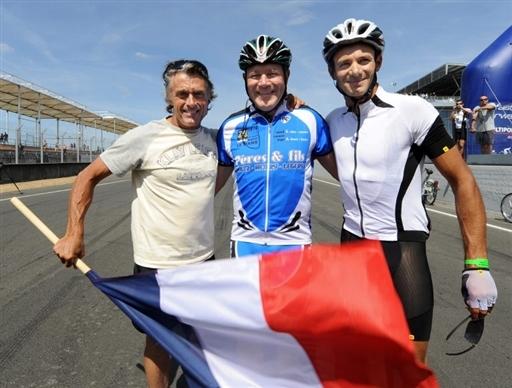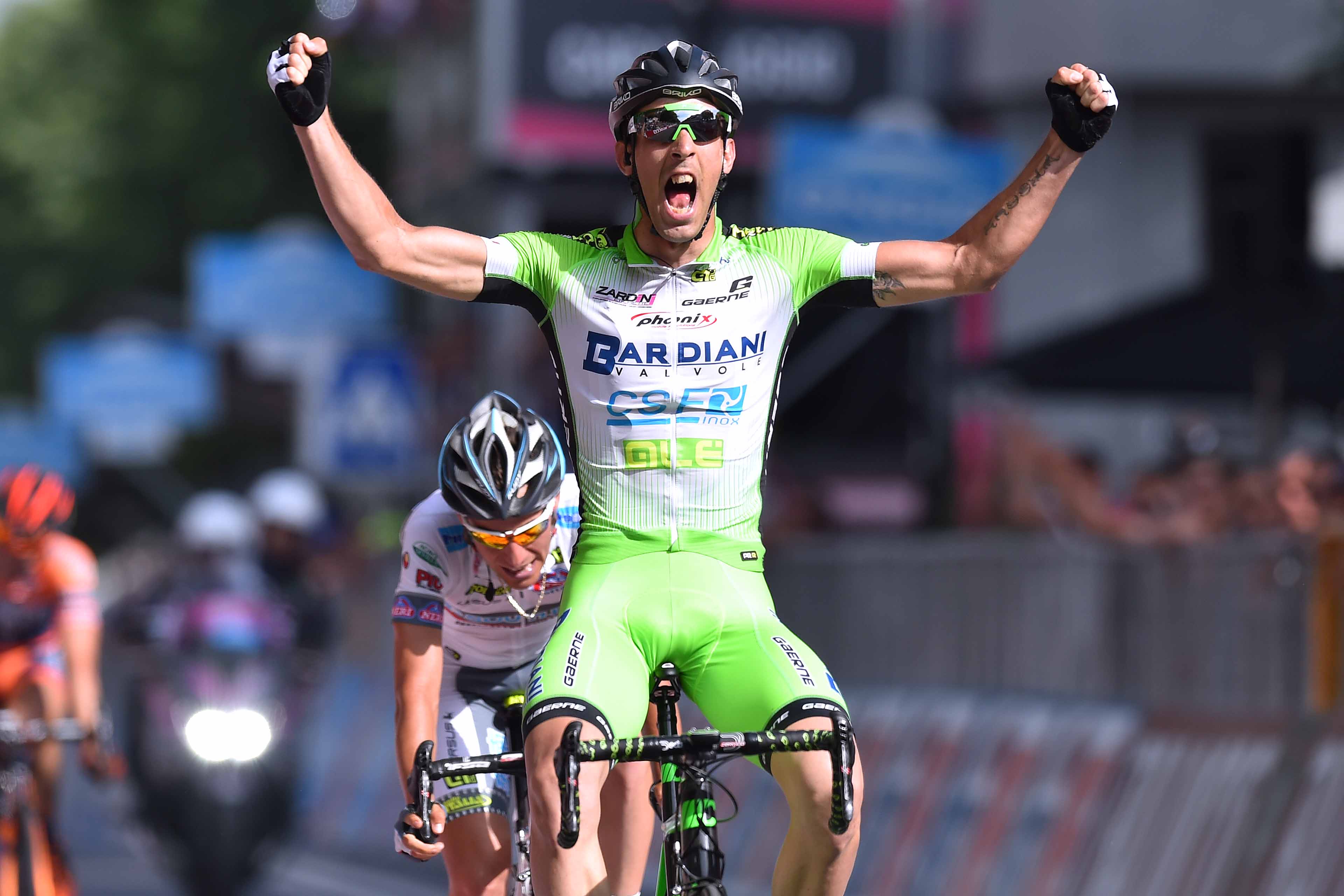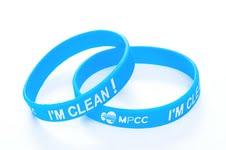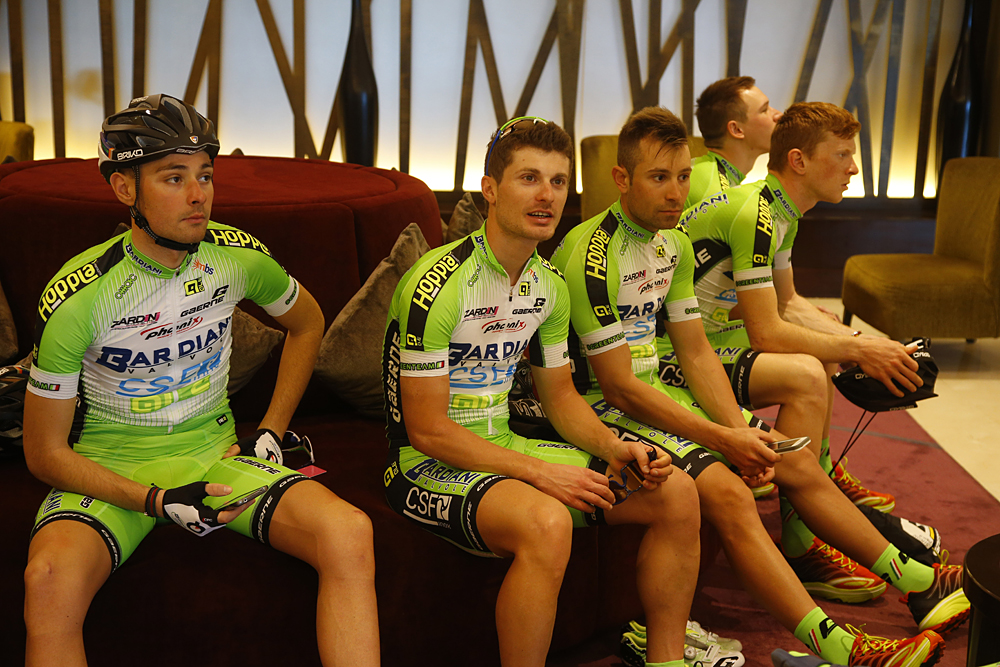MPCC responds to Bardiani-CSF departure
Legeay: "The rules and the MPCC will remain the same”




The MPCC has hit back at Bardiani-CSF after the Italian team quit the voluntary organisation on Thursday complaining about the way it handled a low cortisol case at the Giro d’Italia.
The MPCC made public partway through the Giro that pre-race tests had shown an unnamed Bardiani rider to have abnormally low cortisol levels, and that his presence in the race was in contravention of the MPCC rule that requires such a rider to be withdrawn for eight days.
In an open letter published on Thursday, Bardiani team manager Bruno Reverberi voiced his disappointment in the way the MPCC managed and communicated the situation. The story originally appeared in French newspaper L’Equipe and a press release was quickly sent out on May 20, the day after Bardiani’s Nicola Boem had won stage 10.
However, MPCC president Roger Legeay, speaking to Cyclingnews, said there was no fault on the part of his organisation and that its communications were fair and unequivocal.
“I emailed Bardiani twice before [the Giro] – once on the Friday evening and again on Saturday morning,” Legeay said. “I told them: ‘Your rider, following the rules, cannot start.’ So they were informed in a clear way, without ambiguity on our part, that a rider with an abnormally low cortisol level cannot start.
“At first we didn’t say anything [publicly] – we kept our respect as usual before the information came out in the papers. And then after, well in any case the information was true. That’s why we said yes, it’s true. We can’t say it’s not. If it’s true, it’s true.”
Bardiani argued in its open letter that the timing and message of the MPCC statement was damaging to the team, making them look ‘like a team of dopers.’
The latest race content, interviews, features, reviews and expert buying guides, direct to your inbox!
Asked what he thought of these comments, Legeay said: “The MPCC never said that – it’s them that said that. These are not anti-doping controls, these are health controls. With abnormally low cortisol levels, our doctors say it’s a necessity to withdraw the rider on health grounds.”
The MPCC originally called Bardiani to a meeting on Monday June 8. Lefeay said that had the team not quit, a decision would have been made then and there by the board on whether or not to expel them.
In the open letter, Reverberi claimed the team made a mistake regarding the interpretation of the MPCC rules and reiterated his argument that the rider, who was tested for a second time before the Giro, started the race with normal coristol values. Neither argument is one that Legeay is willing to accept.
“They said they misinterpreted the rules – there is no misinterpretation,” he told Cyclingnews. “I informed them twice by email and in spite of that, they decided to start him.
“We have medical meetings. We had one in October and the Bardiani doctor was there, and the rules and methods of enforcement were put forward and passed unanimously, including by the Bardiani doctors. So it’s not an error; it’s a choice they made. It’s their problem.”
Bardiani are the second team to quit the MPCC this year after Lampre-Merida, who decided to respect Diego Ulissi's contract despite him failing an anti-doping test for asthma drug Salbutamol during the 2014 Giro d'Italia. MPCC rules state that teams cannot sign riders who have served at least a six-month doping ban for two years after the ban, but the Italian team took him back in, arguing it constituted the continuation of his contract rather than a new signing.
There were also question marks over Astana’s handling of Maxim Iglinskiy’s positive test in October last year. MPCC rules state that a team with two positive doping tests in the space of a year must withdraw itself from competition for eight days. Some have suggested Astana delayed deciding whether to request B-sample analysis so they could take part in the Tour of Almaty – their home race – and impose the suspension later.
The Bardiani case threatens to add weight to the notion that teams can simply use the MPCC for public relations purposes before easily ducking out when the regulations don’t suit them. Legeay, however, does not accept that damage is being done to the reputation of his organisation.
“The MPCC is run on a voluntary basis,” he told Cyclingnews. “It’s voluntary to join and afterwards it’s your decision also to withdraw. So that’s their [Bardiani’s] pergoative – it was their wish, at a certain point, to join the MPCC and now it’s their wish to leave.
“Everyone has said ‘Yes you have lots of teams that come because it’s good publicity. I say that’s great, super. Everyone is welcome, everyone knows we exist and we have rules that must be followed 100%.
“It’s a shame [Bardiani have left]. But it’s not us that made the error. Of course, it would be better if all the teams were signed up, if everyone respected our rules. Whether Bardiani are here or not, it doesn’t change anything. There is no controversy here. They didn’t respect the rules and that’s it. The rules and the MPCC will remain the same.”
Patrick is a freelance sports writer and editor. He’s an NCTJ-accredited journalist with a bachelor’s degree in modern languages (French and Spanish). Patrick worked full-time at Cyclingnews for eight years between 2015 and 2023, latterly as Deputy Editor.
